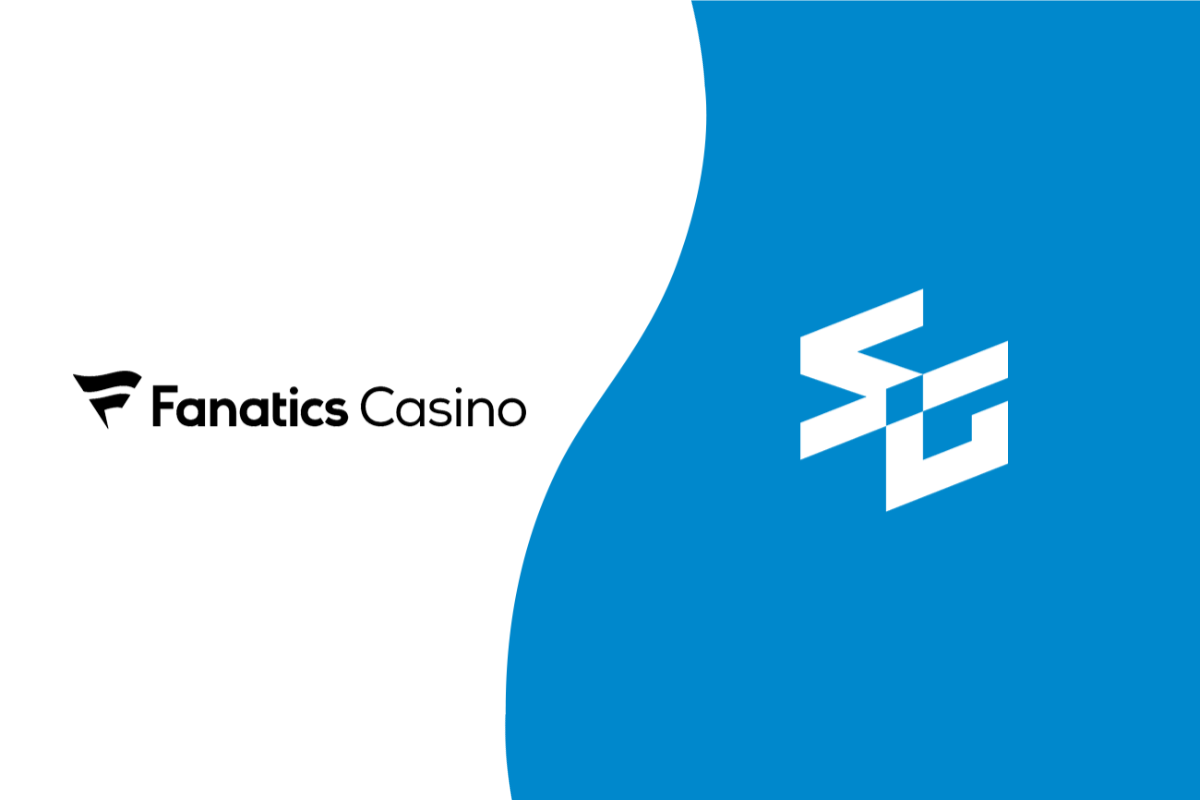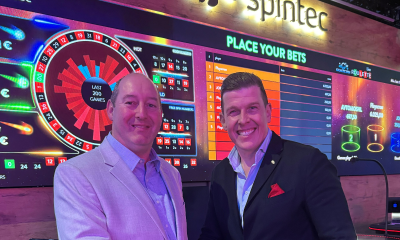Gambling in the USA
Gaming Americas Weekly Roundup – October 5-11

Welcome to our weekly roundup of American gambling news again! It was again an eventful week in the USA, despite the still-active virus attack.
Here, we are going through the weekly highlights of the American gambling industry. Read on and get updated.
Latest News
Twin River Worldwide Holdings has entered into an agreement with Delaware North Companies Gaming & Entertainment, Inc. to acquire Jumer’s Casino and Hotel (Jumer’s) in Rock Island, Illinois for a purchase price of $120 million in cash. Jumer’s is located in the Quad Cities in Rock Island, Illinois and features a 40,000 square foot casino floor containing more than 870 slot machines and 25 table games, a 205 room hotel with 11 luxury suites, an events centre, the Oculus Sports Bar, the Edje nightclub and four restaurants.
Gambling operator Loto-Québec has closed two of its land-based venues due to an increase in the number of coronavirus cases. The two venues are Casino de Montréal and the Salon de jeux de Québec. They will remain closed until October 28. Network bingo, Kinzo and video lottery machines (VLTs) in the metropolitan zones of Montreal, Quebec City and the Chaudière-Appalaches region will be inoperative for the same period. Lottery ticket sales will continue.
MegaFans, a San Diego area-based mobile-casual eSports platform, has completed its first charity fundraising event with the International Game Developers Association (IGDA) Foundation, as part of a series using the MegaFans eSports tournament platform. The first tournament ran through September. The eSports tournament Series is being promoted to raise awareness and funds to go towards the IGDA Foundation’s Diversity Initiative, to improve the lives of independent game developers around the world. Previously, MegaFans worked with the IGDA Foundation on the Stay in the Game Relief Fund which raised over $100,000.
NFL bettors received a reminder just how quickly a pandemic can alter the sports landscape. Two COVID-19-related postponements made for a lighter Sunday schedule and the effects will reverberate into Week 5, according to analysts of TheLines.com.
International Game Technology (IGT) and Scientific Games Corporation have released a joint statement regarding the Exclusive Instant Lottery (LOTEX) concession in Brazil.
Northern California’s Cache Creek Casino Resort, which has been shut down since September 20, has confirmed that the closure was the result of an external attack on the property’s computer network.
New Partnerships
Peripherals manufacturer CORSAIR has partnered with Canadian venue and tournament provider Amuka Esports. As per the deal, CORSAIR will become the exclusive peripherals and gaming chair partner of Waves Gaming, the flagship venue from Amuka Esports, which will also host a CORSAIR Gaming Zone.
DraftKings has become the official daily fantasy sports partner and official sports betting partner of the Philadelphia Eagles. As per the new multi-year deal, DraftKings will receive exclusive naming rights to the Field Club at Lincoln Financial Field, a premium lounge which will be called “The DraftKings Field Club.”
Game developer AGS has signed a new agreement with BetMGM in the US. As per the deal, AGS will provide its gaming content to BetMGM’s entire casino gaming network including BetMGM Casino, Borgata Online and partypoker.
Gambling harm minimisation consultancy EPIC Risk Management has once again teamed up with the Kindred Group to provide sector-leading training and development sessions for their staff in the US.
Powered by WPeMatico
Gambling in the USA
S Gaming ignites US expansion with Fanatics Casino partnership

S Gaming, the fast-growing developer of highly entertaining online slots and casino games, has taken another major step in its US expansion strategy by securing a partnership with leading operator Fanatics Casino.
As part of the agreement, Fanatics Casino will exclusively roll out S Gaming’s standout title, Triple 7 Jackpot, across regulated iGaming markets including New Jersey, Pennsylvania, West Virginia, and Michigan.
What Makes Triple 7 Jackpot Stand Out?
Triple 7 Jackpot delivers a classic slot experience infused with vibrant neon energy. At the heart of the game is its signature Triple 7 feature, which remains visible on-screen throughout gameplay. Players can unlock this feature by landing three Bonus 7 symbols in a single spin.
Once activated, the feature awards one bonus spin and a chance to land the impressive 500x Jackpot prize, adding significant win potential to the experience.
In addition, players can trigger Free Spins by landing three Scatter symbols during the base game, awarding seven Free Games and further opportunities to boost winnings.
Strengthening a Growing US Presence
The partnership with Fanatics Casino marks another milestone in S Gaming’s ambitious US growth strategy. The studio’s focus on sustainable entertainment and accessible, casual gameplay is already resonating with American players.
Charles Mott, CEO and Co-Founder of S Gaming, highlighted the importance of the deal:
“Fanatics Casino needs no introduction and is one of the powerhouse brands in the regulated US market. We’re thrilled to see Triple 7 Jackpot added to its casino lobby and to bring the game to players in New Jersey, Pennsylvania, West Virginia, and Michigan for the first time.”
Mott also noted that the company now works with two major US operators—Fanatics and BetMGM—with additional partnerships expected in the coming months.
Enhancing the Fanatics Casino Portfolio
Fanatics Casino views the collaboration as part of its ongoing strategy to elevate its game offering.
Kieron Shaw, Senior Manager at Fanatics Casino, commented:
“We’re committed to expanding our portfolio to enhance the player experience, which is why we continue to partner with innovative studios like S Gaming. Their focus on fun, combined with strong win potential, brings something fresh and exciting to our platform.”
With this latest launch, S Gaming continues to cement its position in the competitive US iGaming landscape, leveraging premium partnerships to deliver engaging slot experiences to players nationwide.
The post S Gaming ignites US expansion with Fanatics Casino partnership appeared first on Eastern European Gaming | Global iGaming & Tech Intelligence Hub.
Arizona
Arizona Department of Gaming Marks Fifth Super Bowl of Legal Sports Betting — November Wagers Top $965M

The Arizona Department of Gaming today highlighted a major milestone: the upcoming Super Bowl will be the fifth played under Arizona’s legal, state-regulated sports wagering framework. Since regulated event wagering launched in 2021, Arizona’s oversight—guided by state law and Tribal-State Compacts—has aimed to protect consumers, preserve integrity, and generate public revenue.
Key November 2025 figures: strong wagering growth
In its latest monthly report, the Department said Arizona bettors wagered approximately $965 million on sports and events in November 2025 — about a 7.5% increase versus November 2024. The state collected roughly $5.5 million in privilege fees for the month.* Fiscal year-to-date privilege fees total $26.3 million (about $25.7M from event wagering and $637,399 from fantasy sports).
Arizona also recorded its highest monthly event wagering in October 2025 with $967,141,269, and the second-highest in November 2025 with $965,233,844.*
Regulated framework and consumer protections
Arizona’s regulated model requires licensed operators to follow statutory rules, Tribal-State Compacts, and ongoing regulatory oversight. The Department conducts audits, compliance reviews, and integrity controls designed to prevent fraud and illegal activity. Licensed event wagering operators remit privilege fees, calculated as a percentage of gaming revenue — with 90% of those fees directed to Arizona’s General Fund to support state programs and priorities.
There are currently fourteen licensed event wagering operators approved to offer wagering in Arizona, each subject to ongoing Department review and potential audit adjustments.
Responsible play and support resources
The Department emphasizes the importance of using state-licensed event wagering and fantasy sports apps or retail locations. For guidance and safety tips, players are encouraged to visit Check Your Bet at gaming.az.gov/checkyourbet.
For individuals and families affected by problem gambling, the Department’s Division of Problem Gambling offers confidential, subsidized treatment and resources statewide at problemgambling.az.com.
* Disclaimer: Monthly operator figures are self-reported and subject to adjustment after Department audits and review. The Department does not guarantee the final accuracy of the self-reported totals.
The post Arizona Department of Gaming Marks Fifth Super Bowl of Legal Sports Betting — November Wagers Top $965M appeared first on Eastern European Gaming | Global iGaming & Tech Intelligence Hub.
Gambling in the USA
Arizona Department of Gaming Marks Fifth Super Bowl of Legal, State Regulated Sports Betting

Department additionally releases November event wagering and fantasy sports numbers
The Arizona Department of Gaming (Department) today recognized that the upcoming Super Bowl will mark the fifth Super Bowl conducted under Arizona’s legal, state-regulated sports wagering framework. This milestone reflects five years of regulated event wagering operating pursuant to Arizona state law, Tribal-State Compacts, and comprehensive regulatory oversight designed to protect consumers, uphold integrity, and generate public revenue.
“The regulated gaming market in Arizona plays a critical role in ensuring a safe environment for sports wagering – offering responsible entertainment options to millions of Arizonans,” said Jackie Johnson, Department Director. “During major events such as the Super Bowl, regulated gaming supports economic activity, sustains industry jobs, and generates consistent funding that helps finance important local and state programs and priorities.”
Since the launch of regulated event wagering in 2021, the Department has built and executed a regulatory system that serves Arizonans through alignment with consumer protections, responsible gaming, fraud prevention, and more— across major sporting events and marquee games such as the Super Bowl.
The Department oversees licensed event wagering operators through ongoing regulatory processes, audits, and compliance reviews. These efforts are designed to ensure adherence to statutory requirements, responsible gaming standards, and integrity controls, including protections against fraud and illegal activity. Licensed operators are also required to remit privilege fees to the State of Arizona, which are deposited into the state’s General Fund.
As enacted by the Arizona State Legislature and through the 2021 Amended and Restated Tribal-State Compacts, the State of Arizona allows for eligible operators to apply to the Department for an event wagering license. Today, there are fourteen licensed event wagering operators. Event wagering licensees pay privilege fees to the state, calculated as a percentage of gaming revenue, with 90 percent of the fees flowing to the state’s General Fund.
On a monthly basis, the Arizona Department of Gaming releases event wagering and fantasy sports figures. Today, it released its latest reporting of monthly figures – covering November 2025, in which bettors in Arizona wagered approximately $965 million on sports and events. This represents an approximate 7.5 percent increase when compared to November of 2024. The state collected approximately $5.5 million in privilege fees in the month.*
To view the full report, see: gaming.az.gov/resources/reports. Fiscal year-to-date regulated event wagering and fantasy sports privilege fees in Arizona have totaled $26.3 million, including $25.7 million in event wagering and $637,399 in fantasy sports.*
In its five-plus years since the launch of sports betting, the Department saw its highest event wagering activity recorded in October 2025 with a total of $967,141,269 – and the second highest record in November 2025 with a total of $965,233,844.*
To learn about why it’s important to play with a state-licensed event wagering or fantasy sports app or retail location this Super Bowl, visit Check Your Bet at gaming.az.gov/checkyourbet, an initiative of the Arizona Department of Gaming.
The Department’s Division of Problem Gambling provides resources statewide to individuals and families impacted by problem gambling. Services include access to confidential, subsidized treatment options. Visit problemgambling.az.com to learn more.
* Disclaimer: These numbers are self-reported by the operators; as such, these numbers are subject to adjustments after audit and review by the Arizona Department of Gaming. The Department makes no assurances regarding the accuracy of these numbers.
The post Arizona Department of Gaming Marks Fifth Super Bowl of Legal, State Regulated Sports Betting appeared first on Americas iGaming & Sports Betting News.
-

 Amusnet6 days ago
Amusnet6 days agoWeek 7/2026 slot games releases
-

 Aphrodite’s Kiss6 days ago
Aphrodite’s Kiss6 days agoLove on the Reels: Slotland Introduces “Aphrodite’s Kiss”
-

 Brino Games6 days ago
Brino Games6 days agoQTech Games integrates more creative content from Brino Games
-

 Baltics7 days ago
Baltics7 days agoEstonia to Reinstate 5.5% Online Gambling Tax From March 1
-

 Denmark7 days ago
Denmark7 days agoRoyalCasino Partners with ScatterKings for Company’s Danish Launch
-

 Booming Games7 days ago
Booming Games7 days agoTreasure Hunt Revival — Booming Games Launches Gold Gold Gold Hold and Win
-

 Bet Rite7 days ago
Bet Rite7 days agoSpintec Expands into Canada with Bet Rite
-

 ELA Games7 days ago
ELA Games7 days agoELA Games Unveils Tea Party of Fortune — A Magical Multiplier Experience



















